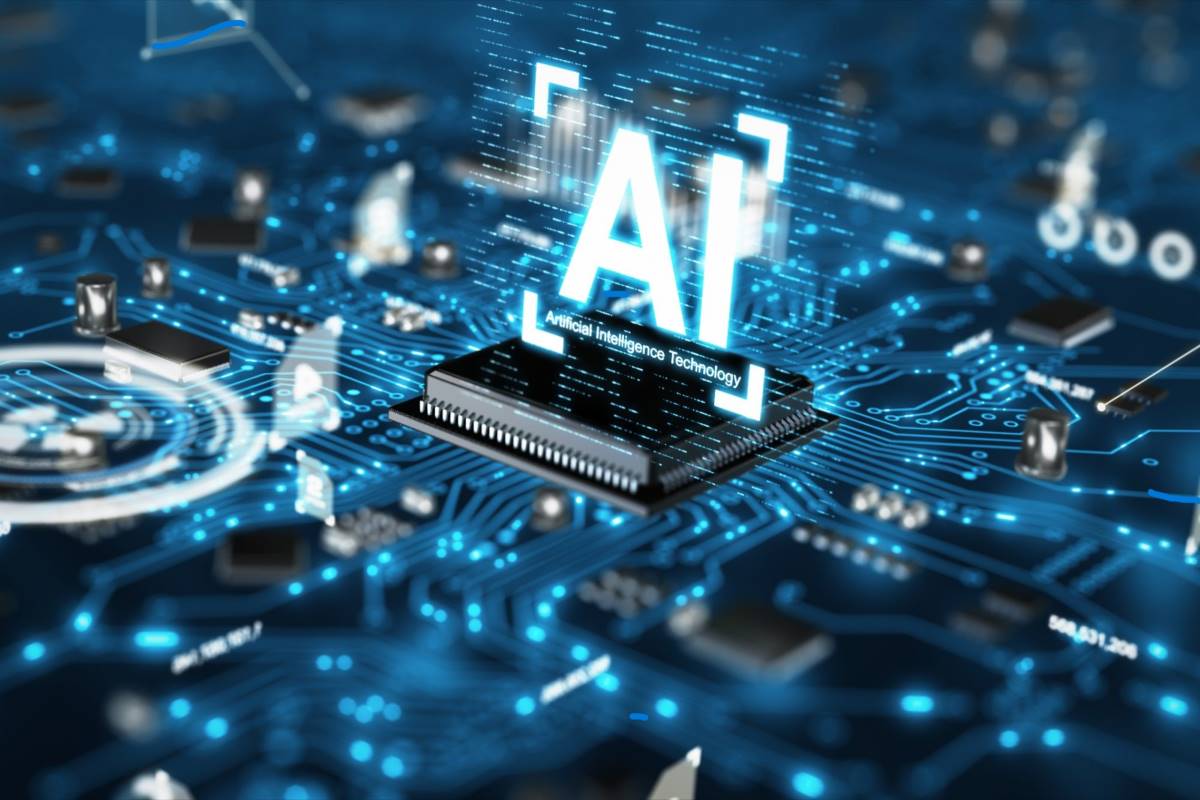Artificial Intelligence continues to reshape industries and redefine what’s possible in technology. As we move into 2024, AI technologies are evolving at an unprecedented pace, unlocking new opportunities and addressing complex challenges.

From multimodal AI that integrates diverse data types to customized enterprise models, these advancements promise to revolutionize how businesses operate and innovate. In this article, we’ll explore the top 10 AI technologies of 2024, offering a glimpse into the future of AI and why these trends matter. Top 10 Ai technologies in 2024 to be discussed below.
1. Multimodal AI
Multimodal AI integrates text, images, audio, and video to enhance data interpretation and decision-making across various applications, including customer service, healthcare diagnostics, content creation, and robotics. It provides deeper insights and personalized experiences but faces challenges like data requirements, high costs, and integration complexity.
Agentic AI, which operates autonomously to achieve goals using reinforcement learning and neural networks, is transforming fields such as autonomous vehicles, personalized assistants, smart manufacturing, and financial services. While it reduces the need for constant human oversight and improves efficiency, it also presents challenges related to ethics, complexity, and integration, with future advancements expected to drive further innovation and automation.
2. Ethical and Responsible AI
Ethical and responsible AI focuses on aligning AI systems with principles like fairness, transparency, accountability, privacy, harm minimization, and inclusivity. Challenges include addressing data biases, balancing transparency with proprietary concerns, navigating diverse regulations, resolving ethical dilemmas, and ensuring adequate human oversight. Prominent frameworks like the European Commission AI Ethics Guidelines, IEEE standards, and the Partnership on AI guide ethical AI development.
In business, AI offers opportunities such as enhanced decision-making, improved customer experiences, automation, and operational efficiency, but also presents challenges related to data privacy, integration, skill gaps, and biases. Best practices for AI implementation include defining clear objectives, investing in data quality, starting with pilot projects, fostering innovation, ensuring human oversight, and continuous monitoring.
3. Open Source AI
Open-source AI platforms have gained prominence for their accessibility, transparency, and collaborative development. These platforms, such as TensorFlow, PyTorch, and Hugging Face Transformers, allow developers to modify and improve AI tools, fostering innovation and reducing costs. Benefits include a vibrant community support, accelerated development cycles, and the ability to customize solutions. As of 2024, leading tools include TensorFlow 2.x, PyTorch 2.0, and Hugging Face’s Transformers library, all offering robust capabilities for machine learning and natural language processing.
4. AI in Ethics and Security
The focus on AI ethics and security is intensifying as AI technologies become more integral to various sectors. Key areas of concern include ensuring fairness, transparency, and accountability in AI systems, as well as protecting against security risks such as data breaches and misuse of AI. The regulatory landscape is evolving to address these issues, with frameworks and guidelines being developed to ensure responsible AI deployment. Balancing innovation with ethical considerations and robust security measures is crucial for building trust and ensuring AI’s positive impact.
5. Retrieval-Augmented Generation (RAG)
Retrieval-Augmented Generation (RAG) is a technique that enhances the relevance and accuracy of AI-generated content by integrating retrieval mechanisms with generative models. RAG combines information retrieval from external databases with generative models to produce more accurate and contextually relevant responses. This method is particularly useful for tasks requiring detailed and specific information, as it allows the AI to fetch pertinent data before generating a response, improving the overall quality of the output.
6. AI in Healthcare: Transformations, Benefits, and Ethical Considerations
AI is revolutionizing healthcare with advancements like improved diagnostics, personalized treatments, and enhanced patient monitoring, while also optimizing hospital operations and accelerating drug discovery. Benefits include increased efficiency, accuracy, and accessibility, though challenges persist in data privacy, algorithmic bias, and integration. Future AI trends encompass autonomous systems, advanced natural language processing, generative AI, edge computing, enhanced cybersecurity, and applications in climate and quantum computing.
Opportunities in AI include better decision-making, personalized experiences, and new business models, but ethical concerns, regulatory challenges, workforce displacement, and technical limitations must be addressed. The successful evolution of AI will depend on balancing innovation with ethical practices and collaborative governance.
7. Generative AI Reality Check
Generative AI can create high-quality content, including images, text, and music, and is used in various applications like generating synthetic data and personalized marketing. However, it faces limitations such as producing inaccurate or nonsensical outputs, amplifying biases present in training data, and raising intellectual property concerns. While media hype often portrays generative AI as more advanced and versatile than it is, the reality is that its capabilities are significant but not without limitations. Practical use of generative AI requires careful handling, human oversight, and attention to ethical issues.
8. AI Talent Demand
The demand for AI talent is surging due to a significant gap between the need for skilled professionals and the available workforce. Companies are struggling to fill roles in AI research, data science, and machine learning engineering. Key skills in demand include proficiency in programming languages like Python, deep learning, and data handling, as well as an understanding of ethical considerations and regulations. In 2024, there is a focus on interdisciplinary skills that combine AI expertise with other fields, and a strong emphasis on continuous learning to keep pace with rapid advancements in AI technology.
9. AI Regulation and Governance
AI regulation and governance are evolving rapidly to ensure responsible development and use of AI technologies. New policies are emerging to address AI ethics, transparency, and accountability, including frameworks for data protection and algorithmic fairness. There is a global push for consistent international standards to manage AI’s cross-border impact.
Key focus areas include making AI systems transparent and understandable, establishing accountability mechanisms, and creating guidelines to prevent misuse and address biases. Future directions involve developing adaptive regulatory frameworks that can keep up with AI advancements and engaging diverse stakeholders in shaping effective AI governance policies.
10. Quantum AI
Quantum AI merges quantum computing with artificial intelligence to enhance computational power and problem-solving. By leveraging quantum mechanics, it can perform complex calculations much faster than classical computers, potentially revolutionizing fields like cryptography and drug discovery through more efficient processing and modeling of intricate tasks. This fusion promises significant advancements in areas where traditional AI approaches struggle with complexity.
Final Thoughts: Top 10 Ai technologies in 2024
The future of AI holds immense promise, with emerging trends poised to transform industries, enhance human capabilities, and address global challenges. However, realizing the full potential of AI requires navigating a complex landscape of ethical, technical, and regulatory challenges. By fostering innovation while prioritizing ethical considerations and human-centered design, the AI community can build technologies that are not only powerful but also aligned with the values and needs of society. As AI continues to evolve, ongoing collaboration between governments, industry, academia, and civil society will be essential in shaping a future where AI contributes positively to humanity and the world.

